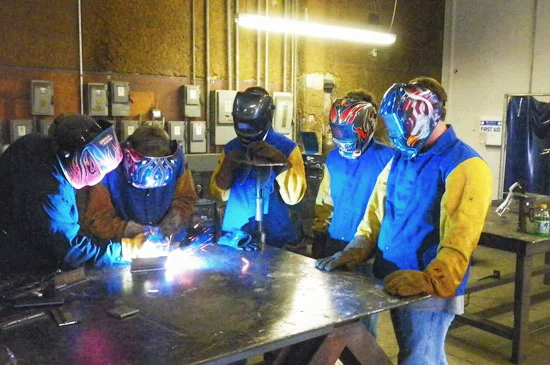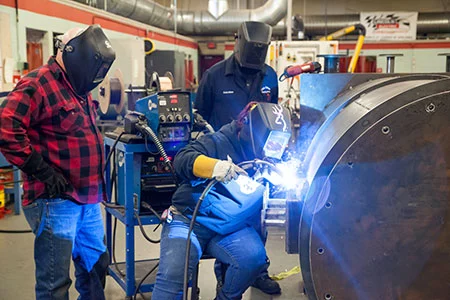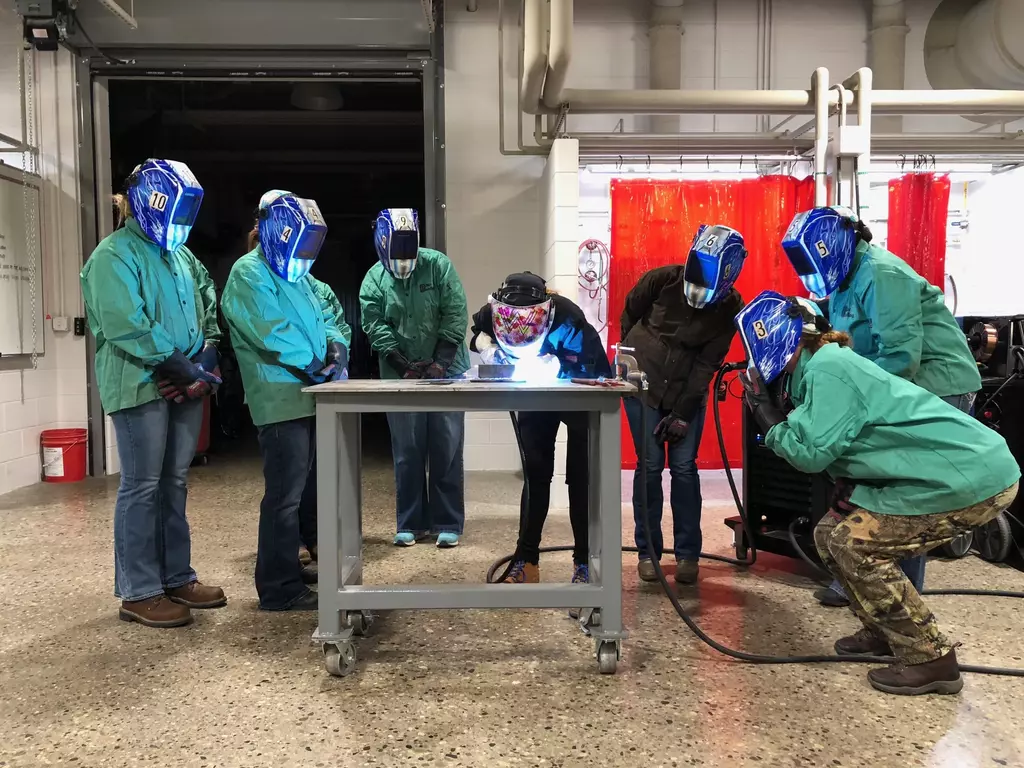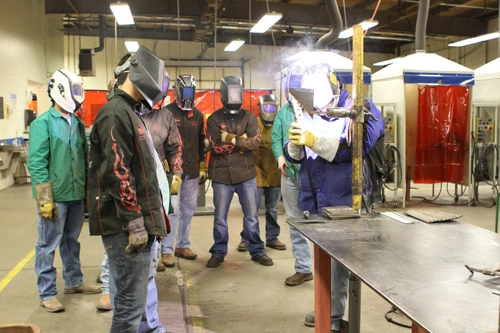In this article, we would like to depart from our usual technical format to offer some philosophical principles and tips for young welding professionals.
We hope these ideas will be of particular help to welding professionals with perhaps ten years of experience or less as they begin their careers.

Try to remember these tips whenever you have to make a decision or encounter unexpected issues in your welding project or design. While they are not groundbreaking, you might find them helpful in specific situations.
Tips For Young Welding Professionals
There Are No Dumb Ideas In Brainstorming
When a group of welders gets together to try and solve a problem, I often remind the group of this principle. At the brainstorming stage, it is essential that everyone feel free to offer their ideas up to a non-judgmental audience. Without such a climate, the best idea may never be expressed. Remember the words of Charles Brower, who said, “A new idea is delicate. It can be killed by a sneer or a yawn. It can be stabbed to death by a joke or worried to death by a frown on the right person’s brow.”

That’s why young welding professionals should never hold back on their idea, no matter how stupid they might seem in their heads.
There Is No Such Thing As A Stupid Question
Everyone has heard this one, often from a school teacher or even welding instructors, but I can think back on hundreds of ideas I’ve learned because I asked a question. It is incredible how much one can learn by simply asking, “Why do you do that?” Granted, sometimes this question provokes a blind stare, but more often than not, I learn that a less-than-obvious reason is behind the practice.
Therefore, do not be afraid to ask questions, as sometimes answers might be more valuable than a look of shame or staring by more experienced welders and experts.
Always Be Honest
This principle shouldn’t be emphasized, but I’m afraid it does. If you are honest, you will always give your boss, customers, suppliers, and everyone else you contact the best answer you can.
I have told customers of situations where a bolted connection would be better than a welded connection. Sometimes, being honest may mean exposing your boss to what is wrong. There is no such thing as a “white lie”-it is just a lie.

Customers and superiors will respect the truth, even though it might make you look bad. In the end, knowing you did the job right is more worth than getting paid for something you didn’t primarily have to do.
Be Loyal
Loyalty is rare today. Some employees are not loyal to their company, and some companies are not trustworthy to their employees. I’ve been fortunate to work for the same company for over 20 years; I’ve been loyal to my employer, and the company has been faithful to me. Like many of the principles I’m discussing here, loyalty extends to all of our relationships with spouses, children, community, and church.
Loyalty is mutual, so as long you don’t undermine your boss or co-workers, you should expect them to do the same for you.
When Things Go Wrong, Don’t Panic
Rudyard Kipling started one of his poems by saying, “If you can keep your head when all about you are losing theirs…” While this applies to many aspects of life, it is essential in technical fields such as welding. When the unexpected occurs, emotions typically run high, and some folks tend to panic. In such situations, slow down. Think. Use your training to analyze the problem systematically. Only by keeping your head cool, you will be able to come up with a solution without causing even more damage to your weld design or project.
Determine “What You Don’t Want The Worst”
Engineering is a process that involves compromise and tradeoffs. There is always tension between, say, features and cost. Or strength versus weight. The list could be endless.
This dilemma is often frustrating to young weld designers, and so I challenge them to consider, “what don’t you want the worst?”
The grammar of that sentence bothers my wife every time she hears it, but it gets people’s attention.

Identifying and rejecting the worst possible option can lead us to focus more quickly on more desirable, albeit sometimes less than ideal, alternatives.
Don’t Jump To Conclusions
H.L Mencken said, “For every complex problem, there is a simple solution, and it is always wrong.” This may not always be the case, but the apparent solution often proves wrong. For example, when something breaks, our first instinct is to redesign it using stronger or thicker material. Several of our articles are filled with examples of quick reactions that proved incorrect because the underlying technical principles were not understood. Don’t jump to conclusions, but methodically, step by step, seek the root cause of the problem.
Be A Lifelong Learner
Particularly in the technical fields, change is constant. To stay current, we must all be lifelong learners. Join technical societies, and participate in their activities. Attend seminars and conventions. Read technical journals. Accept the changes in the industry, but keep the new weld innovations are always good in reserve to your experience.
Be Alert To Opportunity
Opportunities are all around us, but the reality is that few people recognize them. For example, Sir William Crookes invented the cathode-ray tube and discovered that it would cause a photographic film to become foggy when exposed to the output of the tube. Crookes then concluded that film should not be stored near the cathode-ray tube. A few years later, Wilhelm Roentgen ruined some film that was stored near a cathode-ray tube. This experience led him to invent the X-Ray machine. Both men made the same observations, but Roentgen capitalized on his newfound knowledge.

Contribute To Your Industry
We all benefit from the contributions of those who have gone before us. Just as others left behind a legacy for us to build upon, so we should leave a foundation for the next generation. Write technical papers and participate in industry committee activities. Be a mentor. Encourage young people to join the welding profession as someone encouraged and mentored you to become what you are.




